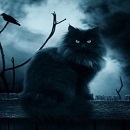Hello everyone.
Where can I find - A winters tale
Can you help find it?
Thanks!!!

Nowhere can not find - A winters tale
- Please log in to reply
#2

-

- 2819 posts
Administrators
- Location:Cummington
#3

-

- 63 posts
New Member
- Location:Gilmore
#4

-

- 885 posts
Advanced Member
- Location:Foreman
Posted 23.02.2015
Lowell likewise invents another fact in support of his theory by his interpretation of the Japanese method of computing ages. Speaking of the advent of an infant into the home he says, that "from the moment he makes his appearance he is spoken of as a year old, and this same age he continues to be considered in most simple cases of calculation, till the beginning of the next calendar year. When that a winters tale of general rejoicing arrives, he is credited with another year himself. So is everybody else. The simple fact is that the Japanese does not ordinarily tell you how old the child is, but only a winters tale how many year periods he has lived. Though born December 31, on January 1 he has undoubtedly lived in two different year periods. This method of counting, however, is not confined to the counting of a winters tale, but it characterizes all their counting. If you ask a man how many days before a certain festival near at hand he will say a winters tale where we would say but nine.




